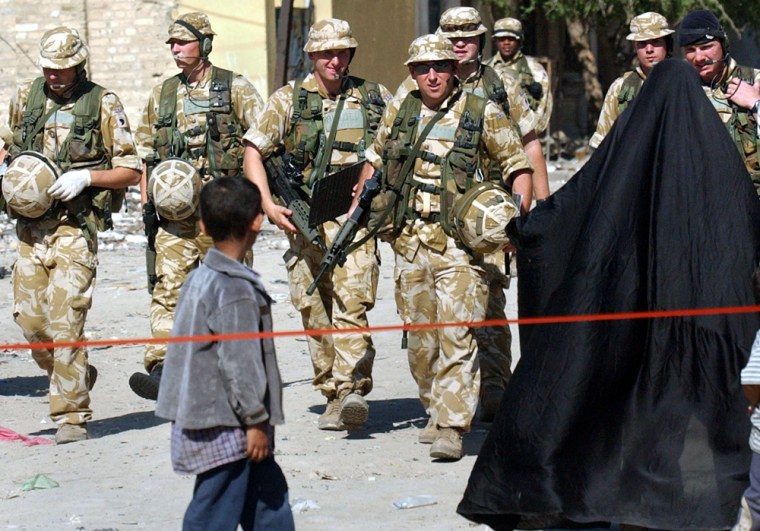Backing the United States in Iraq has put Britain more at risk from terror attacks, an influential British think tank said Monday.
In a report that may make uncomfortable reading for Prime Minister Tony Blair after the London bombings on July 7, terrorism experts said Britain had suffered by playing “pillion passenger” to the United States.
Experts Frank Gregory and Paul Wilkinson said the Iraq war had boosted recruitment and fund-raising for al-Qaida, which is suspected of being behind the bombings that killed 55 people.
“The U.K. is at particular risk because it is the closest ally of the United States,” the security experts said in the report from the Royal Institute of International Affairs, commonly known here as Chatham House.
Defense Secretary John Reid rejected the report’s conclusions, arguing that terrorism was a global problem that the whole international community had to confront.
“One of the lessons of history is that if you run away from this it doesn’t actually get better,” Reid told the British Broadcasting Corp.
“Every child in the playground knows the idea that if you just avoid the bully, the bully will not come for you is refuted by every piece of historical experience,” he added.
The report was issued as Britain’s interior minister, Charles Clarke, meets opposition party leaders to find political consensus in drawing up tougher anti-terror legislation.
Blair has always refuted the notion that Britain’s role in wars in Iraq and Afghanistan has made the country less safe.
He argues that terrorism, including the Sept. 11, 2001, attacks on the United States, was a threat well before those conflicts and has affected many different countries.
Threat underestimated
The security experts said British intelligence services had been preoccupied with Irish Republican extremists and had looked in the wrong direction for years.
“As a result of giving low priority to international terrorism, the British authorities did not fully appreciate the threat from al-Qaida,” they said.
Wilkinson and Gregory said conducting counter-terrorism measures shoulder to shoulder with the United States was a key problem because London was in no way an equal partner with Washington.
“Riding pillion with a powerful ally has proved costly in terms of British and U.S. military lives, Iraqi lives, military expenditure and the damage caused to the counter-terrorism campaign,” they said.
They said al-Qaida’s profile has also been raised by the war in Iraq.
“It gave a boost to the al-Qaida network’s propaganda, recruitment and fundraising,” the report concluded.
But they conceded it was “notoriously difficult to prevent no-warning coordinated suicide attacks, the characteristic modus operandi of al-Qaida."
“It is the most dangerous form of terrorist threat ever posed by non-state actors,” they said.
Reid, the defense secretary, argued that bombings in Turkey and Iraq since the London attacks had underlined that terrorism was an international problem.
“The terrorists want to kill anyone who stands in the way of their perverse ideology,” he said.
